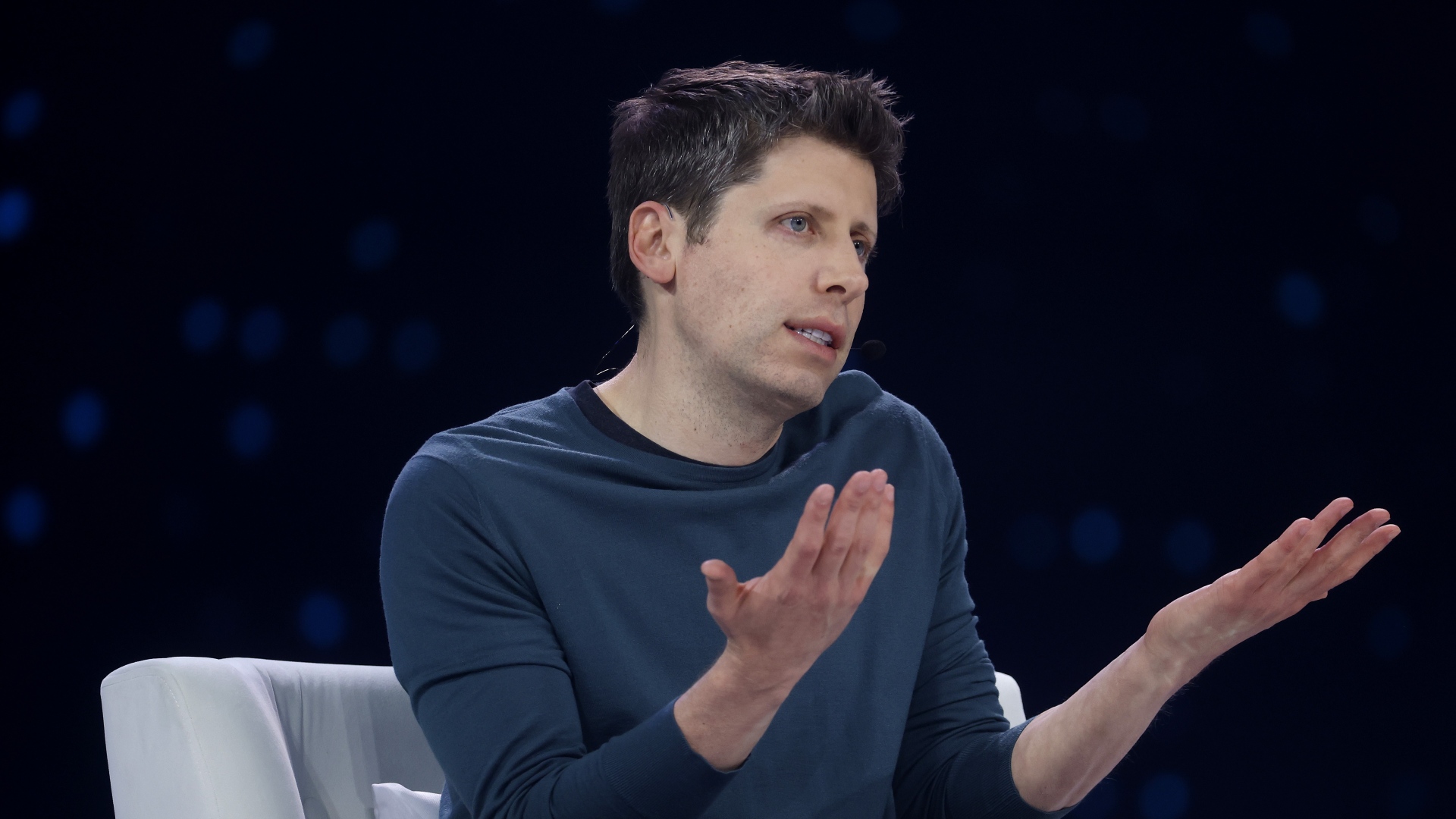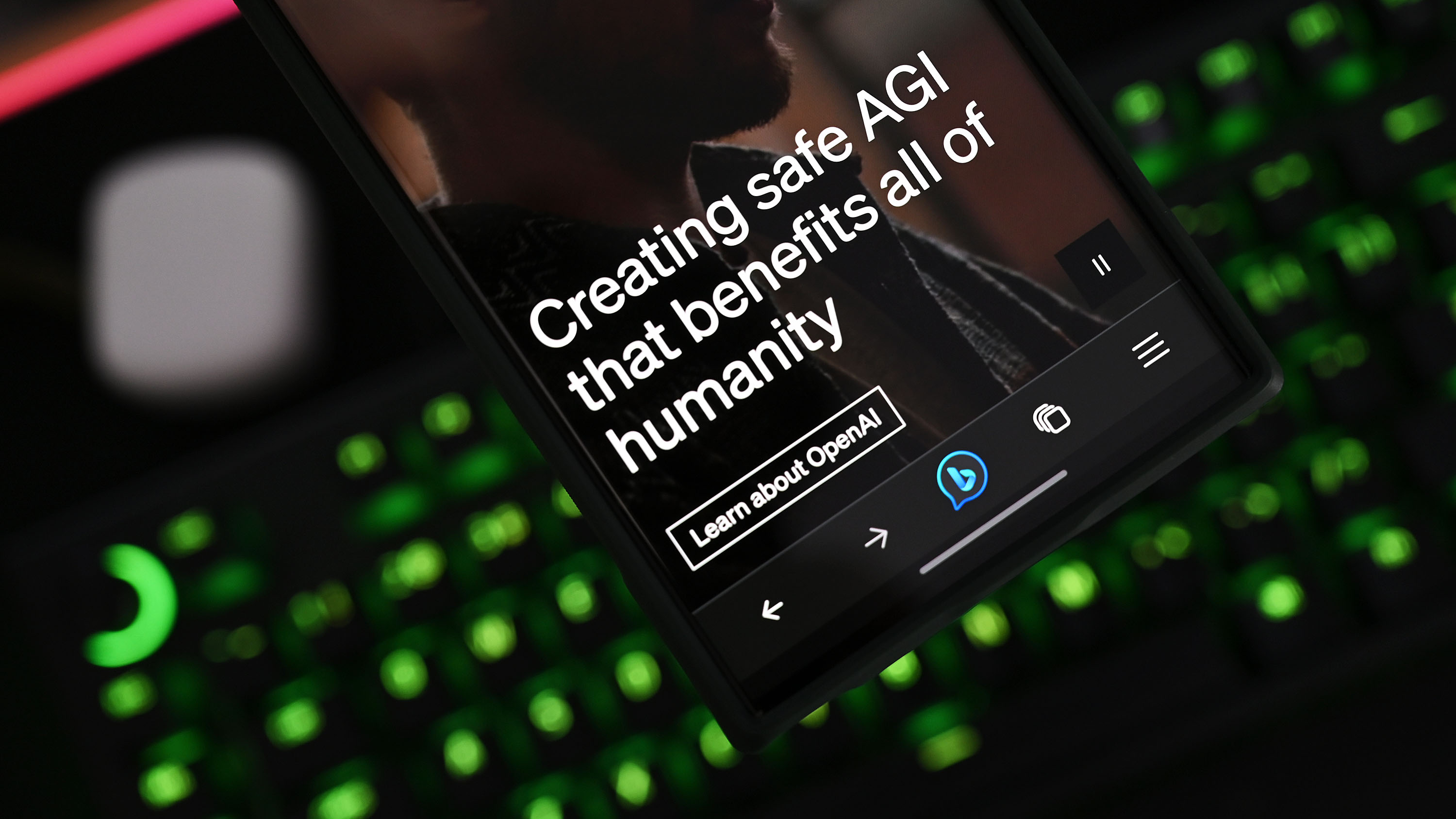OpenAI CEO Sam Altman claims "ChatGPT is already more powerful than any human who has ever lived"
Sam Altman offers some insight on the company's trajectory toward AGI, the impact of AI on jobs, and more.

All the latest news, reviews, and guides for Windows and Xbox diehards.
You are now subscribed
Your newsletter sign-up was successful
OpenAI CEO Sam Altman recently wrote a blog post titled "The Gentle Singularity," indicating that it may be the last post he writes without any assistance from generative AI. In the post, the executive shared some interesting insights about AI, the trajectory to AGI (Artificial General Intelligence), job security in the AI era, and more.
The executive indicated that OpenAI is building a brain for the world, which will be "extremely personalized and easy for everyone to use." Altman is confident with the advances that ChatGPT maker is making in the AI space and says the startup industry will be viewed as more than "the idea guys" looking for a team to build. "It now looks to me like they are about to have their day in the sun," Altman added.
wrote a new post, the gentle singularity.realized it may be the last one like this i write with no AI help at all.(proud to have written "From a relativistic perspective, the singularity happens bit by bit, and the merge happens slowly" the old-fashioned way)June 10, 2025
Last year, the executive shared an audacious AI vision with the United Arab Emirates, which would "take $7 trillion and many years to build 36 semiconductor plants and additional data centers" to achieve. TSMC executives dismissed Altman's vision, referring to him as "a podcasting bro" for his absurd computing demands.
Sam Altman claims, "ChatGPT is already more powerful than any human who has ever lived", with hundreds of millions of people depending on its sophisticated capabilities for important tasks. He indicated that the rapid advances in AI are driving faster scientific progress, particularly with the emergence of AI agents, which could improve quality of life while simultaneously increasing productivity.
However, the executive admitted that whole classes of jobs could become extinct with the rapid emergence of AI, but argued that the world would get rich quickly, making it easier to consider new policies that we normally wouldn't. "If history is any guide, we will figure out new things to do and new things to want, and assimilate new tools quickly," Altman added.
Interestingly, Microsoft's AI CEO Mustafa Suleyman seemingly echoed similar sentiments, foresseing an AI-powered world that is more inclined toward intelligence that "hard cash" as its currency.
OpenAI's CEO predicts that intelligence and energy will be available in abundance by 2030. The CEO indicated that these factors often deter human progress; once they become widely available, everything else will pretty much be within our reach.
All the latest news, reviews, and guides for Windows and Xbox diehards.
He listed the following steps as the plausible path toward superintelligence:
- Solve the alignment problem, meaning that we can robustly guarantee that we get AI systems to learn and act towards what we collectively really want over the long-term (social media feeds are an example of misaligned AI; the algorithms that power those are incredible at getting you to keep scrolling and clearly understand your short-term preferences, but they do so by exploiting something in your brain that overrides your long-term preference).
- Then focus on making superintelligence cheap, widely available, and not too concentrated with any person, company, or country. Society is resilient, creative, and adapts quickly. If we can harness the collective will and wisdom of people, then although we’ll make plenty of mistakes and some things will go really wrong, we will learn and adapt quickly and be able to use this technology to get maximum upside and minimal downside. Giving users a lot of freedom, within broad bounds society has to decide on, seems very important. The sooner the world can start a conversation about what these broad bounds are and how we define collective alignment, the better.
How much electricity does ChatGPT consume?
Over the past few years, we've received various accounts suggesting the amount of power ChatGPT consumes to generate a single account. While the figures have varied, one thing is apparent: AI requires an exorbitant amount of electricity and water for cooling.
In April, Sam Altman revealed that OpenAI spends "tens of millions of dollars" on polite prompts, such as "please" and "thank you". Now, the executive has revealed OpenAI's usage data.
For every query response, ChatGPT uses 0.34 watt-hours, "about what an oven would use in a little over one second, or a high-efficiency lightbulb would use in a couple of minutes."
We recently learned that OpenAI's GPT-3 model consumes four times more water than previously thought, while GPT-4 consumes up to 3 water bottles to generate a mere 100 words. However, Sam Altman says ChatGPT uses 0.000085 gallons of water to generate a single response to a query.

Kevin Okemwa is a seasoned tech journalist based in Nairobi, Kenya with lots of experience covering the latest trends and developments in the industry at Windows Central. With a passion for innovation and a keen eye for detail, he has written for leading publications such as OnMSFT, MakeUseOf, and Windows Report, providing insightful analysis and breaking news on everything revolving around the Microsoft ecosystem. While AFK and not busy following the ever-emerging trends in tech, you can find him exploring the world or listening to music.
You must confirm your public display name before commenting
Please logout and then login again, you will then be prompted to enter your display name.

